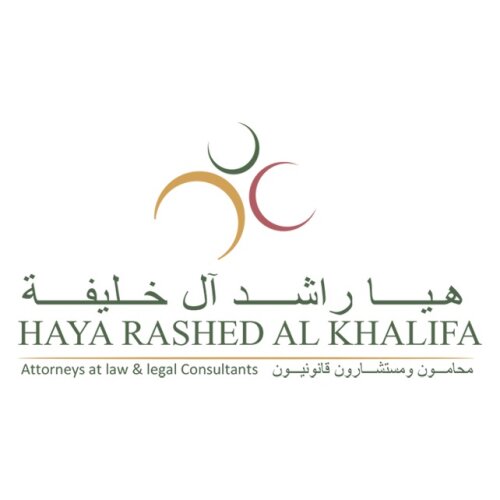Best Estate Planning Lawyers in Bahrain
Share your needs with us, get contacted by law firms.
Free. Takes 2 min.
Or refine your search by selecting a city:
List of the best lawyers in Bahrain
About Estate Planning Law in Bahrain
Estate Planning in Bahrain is a vital process that involves organizing and managing an individual's estate during their life and distributing it after their death. It enables people to ensure that their assets are passed on to their beneficiaries in accordance with their wishes. The legal framework governing estate planning in Bahrain is influenced by Islamic law, which dictates specific inheritance rules. However, expatriates can opt for the laws of their home country under certain conditions. Despite these religious and legal guidelines, there are ways to plan one's estate in a way that aligns with personal and familial priorities.
Why You May Need a Lawyer
Many situations warrant the expertise of a lawyer in Estate Planning. These include:
- Complex family dynamics, such as second marriages, step-children, or estranged relatives.
- Significant assets, multiple properties, or ownership of businesses that need to be managed and distributed wisely.
- Desire to reduce potential taxes or administrative costs that could diminish the estate.
- The need to plan for health care decisions or manage finances in the event of incapacitation.
- Establishing trusts for minor children or relatives with special needs to ensure their long-term care and financial support.
- Foreign nationals looking to apply the succession laws of their country of origin to their estate.
Local Laws Overview
In Bahrain, estate planning is primarily governed by Islamic Sharia law for Muslim residents, which outlines specific shares of inheritance to family members. Key aspects include:
- Mandatory inheritance shares for specified heirs.
- Testate succession for non-Muslims may follow different rules, often allowing more flexibility in distributing assets according to a will.
- The creation of Waqfs (charitable endowments) as a mode of estate planning within an Islamic framework.
- The possibility for expatriates to have their estate dealt with in accordance with the laws of their home country, subject to registration and recognition.
- Detailed consideration of real estate inheritance, as this can vary significantly under different jurisdictions.
Frequently Asked Questions
What is the basic premise of estate planning in Bahrain?
Estate planning in Bahrain is meant to manage and preserve individual assets during their lifetime, ensure proper distribution posthumously, and might involve drafting wills, setting up trusts, and managing taxes.
Can expatriates choose the law of their home country for inheritance?
Yes, expatriates can opt to apply the succession laws of their home countries to their estates in Bahrain, but this typically requires legal counsel to ensure recognition and compliance with Bahrain's regulations.
How does Islamic law affect estate planning for Muslims?
Islamic law dictates specific shares of inheritance for particular heirs, such as children, spouses, and parents. Legal counsel can help navigate these rules while allowing for some personal discretionary allocations.
Is a will necessary in Bahrain?
Although optional, having a will is advisable to ensure clarity and precision in the distribution of assets according to the testator's wishes, within the framework allowed by the applicable legal system.
What happens to my estate if I die without a will in Bahrain?
If a person dies intestate, their estate is distributed under the rules of Sharia for Muslims or the laws of intestacy for non-Muslims, which may or may not align with personal wishes.
Can a trust be established for minor children?
Yes, establishing a trust can provide for the financial support and care of minor children, ensuring their needs are met according to the benefactor's specifications.
What is a Waqf, and how can it be used in estate planning?
A Waqf is an Islamic endowment for a charitable cause, and it can be used as an estate planning tool to fulfill religious and philanthropic goals within the framework of Islamic law.
Are there taxes applied to inheritance in Bahrain?
Currently, Bahrain does not impose inheritance tax. However, planning is essential to avoid potential liabilities, especially concerning properties held in other jurisdictions.
How are real estate assets abroad treated in Bahraini estates?
The treatment of international real estate assets depends on the respective legal jurisdictions and may require professional guidance to ensure seamless integration into Bahrain's estate planning processes.
How should long-term health care or incapacity be planned for?
Legal counsel can help set up living wills, power of attorney, and health care proxies to manage decisions in the event of incapacity and ensure continuity and security for the individual’s health care and financial needs.
Additional Resources
Several resources can aid those interested in estate planning in Bahrain:
- The Bahrain Chamber for Dispute Resolution offers mediation and arbitration services.
- The Ministry of Justice and Islamic Affairs can provide guidance on legal documents.
- Local law firms specializing in estate planning can offer tailored legal advice.
- Consulting with financial advisors and accountants with experience in Bahraini estate law is also recommended.
Next Steps
If you need legal assistance in estate planning, consider the following steps:
- Identify a law firm or legal advisor with experience in Bahrain's estate planning laws.
- Prepare a detailed list of your assets, liabilities, and family structure to discuss with your lawyer.
- Decide which aspects of your estate need legal attention, such as setting up a will or trust.
- Consult with your lawyer to determine whether Bahrain's local laws or the laws of your home country should govern your estate.
- Follow through with the legal procedures necessary to formalize your estate plan and ensure it is documented properly to avoid future disputes.
Lawzana helps you find the best lawyers and law firms in Bahrain through a curated and pre-screened list of qualified legal professionals. Our platform offers rankings and detailed profiles of attorneys and law firms, allowing you to compare based on practice areas, including Estate Planning, experience, and client feedback.
Each profile includes a description of the firm's areas of practice, client reviews, team members and partners, year of establishment, spoken languages, office locations, contact information, social media presence, and any published articles or resources. Most firms on our platform speak English and are experienced in both local and international legal matters.
Get a quote from top-rated law firms in Bahrain — quickly, securely, and without unnecessary hassle.
Disclaimer:
The information provided on this page is for general informational purposes only and does not constitute legal advice. While we strive to ensure the accuracy and relevance of the content, legal information may change over time, and interpretations of the law can vary. You should always consult with a qualified legal professional for advice specific to your situation.
We disclaim all liability for actions taken or not taken based on the content of this page. If you believe any information is incorrect or outdated, please contact us, and we will review and update it where appropriate.
Browse estate planning law firms by city in Bahrain
Refine your search by selecting a city.









